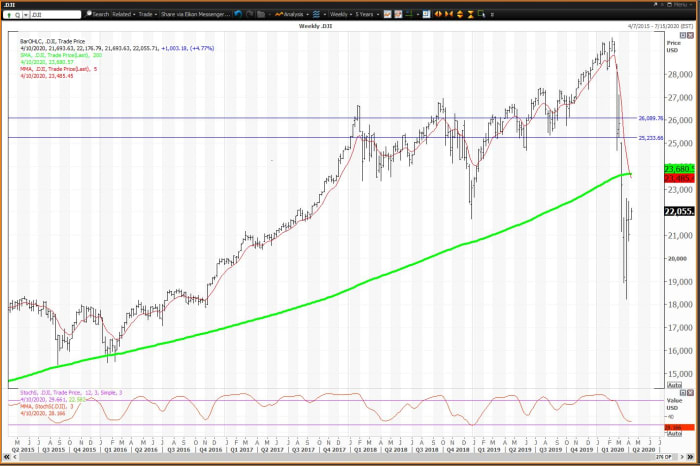Why Are Investors Choosing ETFs Even During Market Downturns?

Table of Contents
Despite recent market volatility, Exchange Traded Funds (ETFs) have seen a surge in popularity. This isn't surprising, considering their inherent advantages, especially during periods of economic uncertainty. ETFs, baskets of securities that trade on stock exchanges like individual stocks, offer a compelling alternative to individual stock picking or actively managed mutual funds. This article explores why investors are choosing ETFs even during market downturns, highlighting their key benefits.
<h2>Diversification and Risk Mitigation</h2>
One of the primary reasons for ETF's growing popularity is their ability to offer instant diversification. Unlike investing in individual stocks, which carries significant risk, ETFs allow investors to spread their investments across a wide range of asset classes, including stocks, bonds, and commodities. This strategic diversification is a cornerstone of effective risk management.
- Reduced risk: By diversifying across multiple assets, ETFs significantly reduce the impact of any single investment performing poorly. If one sector underperforms, the others can potentially offset the losses.
- Protection against market volatility: The inherent spread of investments within a diversified ETF provides a buffer against market fluctuations, making them a more stable investment option during turbulent times.
- Examples of diversified ETFs: Investors can choose from a vast array of diversified ETFs, such as sector ETFs (focused on specific industries like technology or healthcare), global ETFs (covering international markets), or index ETFs (tracking a specific market index like the S&P 500). These diversified ETFs provide different levels of risk and return depending on your portfolio goals.
Investing in diversified ETFs is a crucial component of a solid risk management strategy, allowing investors to navigate market uncertainty with greater confidence.
<h2>Lower Costs and Expense Ratios</h2>
ETFs are renowned for their cost-effectiveness. Compared to actively managed funds, which employ fund managers to pick individual stocks, ETFs typically boast significantly lower expense ratios. This translates to higher returns for investors over the long term.
- Lower expense ratios translate to higher returns: The lower fees associated with ETFs mean that a larger percentage of your investment earnings goes directly into your returns, rather than being eaten up by management fees.
- Comparison of ETF fees versus mutual fund fees: While mutual fund expense ratios can range from 1% to 2% or even higher, many ETFs have expense ratios well below 1%, and some even below 0.1%.
- Passively managed funds: ETFs are largely passively managed, meaning they track a specific index or benchmark. This passive management approach reduces the need for extensive research and active trading, directly contributing to lower costs.
Choosing low-cost ETFs is a simple yet powerful way to enhance your investment returns and improve your overall portfolio performance.
<h2>Liquidity and Accessibility</h2>
ETFs are traded on major stock exchanges, offering investors significant liquidity and accessibility. This makes it easy to buy and sell ETFs throughout the trading day, providing flexibility not always found in other investment vehicles.
- Intraday trading capabilities: Unlike mutual funds, which are typically only priced at the end of the day, ETFs can be bought and sold throughout the trading session.
- Transparency of ETF holdings and pricing: The holdings of most ETFs are publicly available, providing transparency into your investment. Real-time pricing is also readily accessible.
- Accessibility through various brokerage platforms: Most online brokerage platforms offer easy access to ETF trading, allowing investors to manage their portfolios conveniently.
The ease of ETF trading contributes to their popularity among both seasoned investors and those new to the market, enhancing market accessibility for everyone.
<h3>Tax Efficiency</h3>
ETFs often offer significant tax advantages over actively managed funds. Their passive management strategy contributes to lower capital gains distributions, resulting in potential tax savings.
- Lower capital gains distributions: Because ETFs generally don't actively trade as much as mutual funds, they often generate fewer capital gains distributions, which are taxable events.
- Tax-efficient trading strategies: The structure of ETFs facilitates more tax-efficient trading strategies for investors compared to some actively managed funds.
Tax-efficient ETFs are a smart choice for long-term investors looking to minimize their tax burden.
<h2>Transparency and Simplicity</h2>
ETFs are known for their transparency and simplicity. The investment objectives are clearly defined, making it easy to understand what you're investing in and how the fund operates.
- Clearly defined investment objectives: Each ETF has a specific investment goal, clearly stated in its prospectus.
- Easy to track performance: Performance data is readily available through various financial websites and brokerage platforms.
- Suitable for both novice and experienced investors: Their straightforward structure and readily available information make ETFs accessible to both beginners and seasoned investors.
Transparent ETFs empower investors with the information they need to make informed decisions, promoting ease of investing across experience levels.
<h2>Conclusion: Why ETFs Remain a Smart Choice, Even During Market Downturns</h2>
In conclusion, the advantages of ETFs – diversification, low costs, liquidity, tax efficiency, and transparency – make them a compelling investment option, especially during times of market uncertainty. Their ability to mitigate risk, offer cost-effective exposure to various asset classes, and provide easy accessibility makes them a smart choice for investors of all levels. Start exploring the world of ETFs today and discover how they can help you navigate market downturns. Learn more about choosing the right ETFs for your investment goals.

Featured Posts
-
 May 27 Stock Market Dow S And P And Nasdaq Index Performance
May 28, 2025
May 27 Stock Market Dow S And P And Nasdaq Index Performance
May 28, 2025 -
 Gyoekeres Arsenalban Golszerzes Jatekido Es Teljesitmenymutatok
May 28, 2025
Gyoekeres Arsenalban Golszerzes Jatekido Es Teljesitmenymutatok
May 28, 2025 -
 Khyu Dzhakman I Stn Fostr Nova Glava V Zhivota Im
May 28, 2025
Khyu Dzhakman I Stn Fostr Nova Glava V Zhivota Im
May 28, 2025 -
 Mundial De Atletismo Indoor Nanjing 2023 La Seleccion Espanola
May 28, 2025
Mundial De Atletismo Indoor Nanjing 2023 La Seleccion Espanola
May 28, 2025 -
 Stock Market Summary Dow S And P And Nasdaq Closing Prices May 27
May 28, 2025
Stock Market Summary Dow S And P And Nasdaq Closing Prices May 27
May 28, 2025
